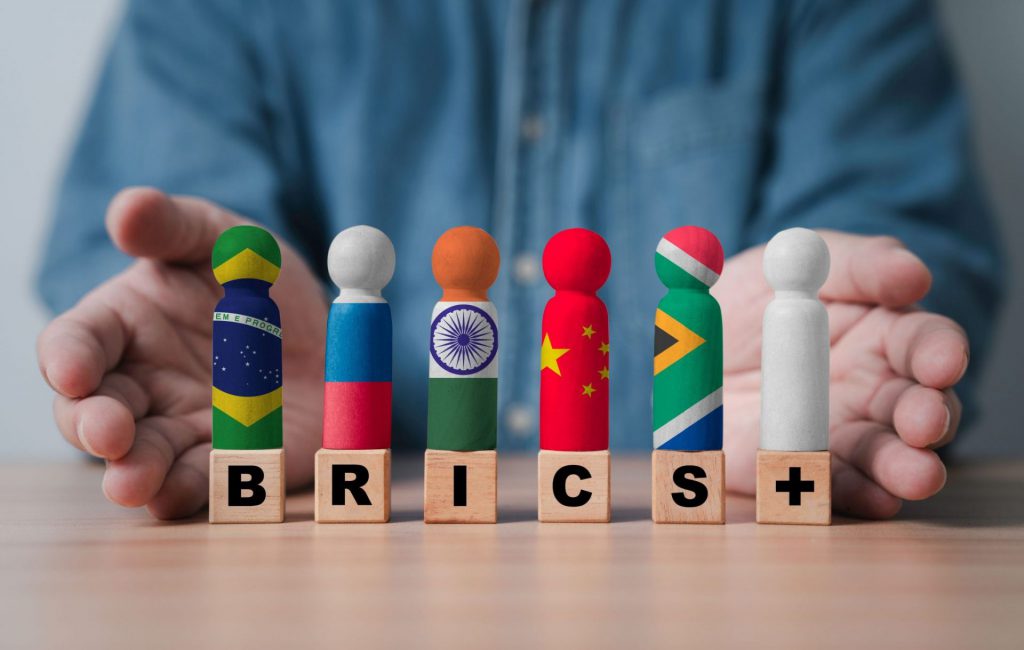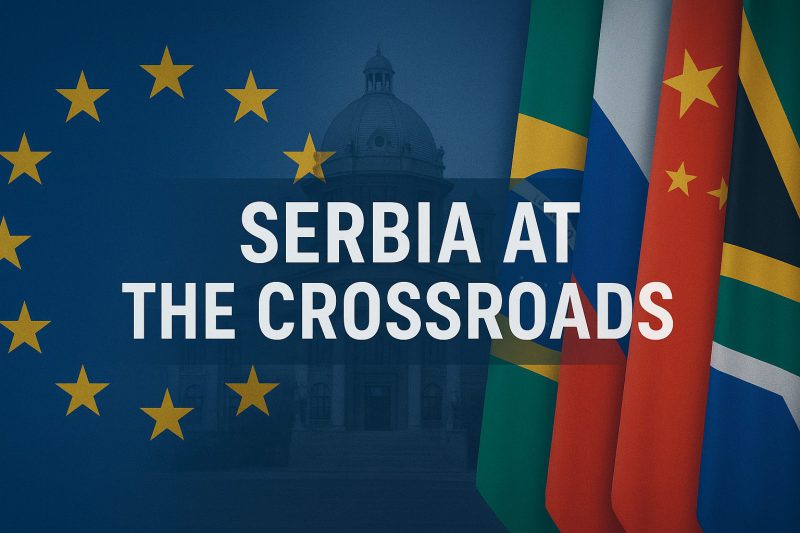Talks between Serbia, the EU, and BRICS reached a turning point Monday as parliament hosted its first international conference examining BRICS membership as an alternative to European integration. The event brought together diplomats from Russia, China, and other nations to debate whether Serbia joining BRICS could replace the country’s EU candidacy.
With Serbia BRICS 2025 prospects now under formal review, the question of whether Serbia is under the European Union remains answered with a “not yet”—and possibly “not ever” if this alternative gains traction.
Also Read: BRICS Members in 2025: Full List, New Member Countries & Global Impact
Serbia’s EU and BRICS Talks Highlight Membership Plans and Global Strategy


Parliament Conference Challenges EU Path
The conference was organized by former intelligence chief Aleksandar Vulin’s Socialist Movement and also the Informal Parliamentary Group for Cooperation and Accession to BRICS. Right now, Vulin is framing Serbia EU BRICS discussions as essential, and he had this to say:
“Be brave because you dare to say that you do not support unconditional membership in the EU.”
He went on to explain Brussels’ demands that are driving interest in Serbia BRICS membership with the bloc:
“Brussels is asking Belgrade to recognize Kosovo’s independence, give up support for the Bosnian entity Republika Srpska, and destroy traditional friendly relations with Russia and China.”
The parliament hall was packed with MPs, diplomats, and journalists from numerous countries, which showed substantial interest in exploring this alternative path.
What BRICS Ambassadors Offered
Russian Ambassador Aleksandr Bocan-Kharchenko outlined why Serbia joining BRICS makes sense for the country. He stated:
“BRICS plays a key role in creating a multipolar world.”
He also added that Russia supports Serbia’s aspirations without compromising EU negotiations. The ambassador explained further:
“BRICS was created in 2006 as a real response to the many changes that the international community requires. BRICS is an organization that best fits the idea of a multipolar world.”
Chinese Ambassador Li Ming welcomed the parliamentary group’s formation and had this to say:
“BRICS has a growing economic influence because it promotes common development in the world and has almost half of the world’s population.”
He characterized the bloc as representing something different, stating:
“True multilateralism and speaks with one voice in international bodies.”
Serbia BRICS news has been gaining attention as these diplomatic efforts intensify at the parliamentary level.
Serbia’s Current EU Status
So is Serbia under the European Union right now? No, it isn’t. The country became a candidate back in 2012 and began negotiations in 2014, but accession remains incomplete and depends on reforms and also foreign policy alignment with Brussels. At the time of writing, those negotiations are still ongoing and covering various policy areas that need to be addressed. The question is Serbia under European Union membership keeps coming up as BRICS discussions gain momentum.
Domestic Support for BRICS in 2025
President Aleksandar Vučić revealed some interesting Serbia BRICS news showing 42 percent public support for membership in the bloc. He acknowledged the growing sentiment and stated:
“Perhaps, in a few years, BRICS will become the subject of a referendum in Serbia.”
Serbian Parliament’s BRICS representative Dragan Stanojevic argued that Serbia BRICS membership cooperation feels natural for the country, saying that members are friendly and that “none of them has threatened Serbia’s sovereignty.”
Also Read: China Invites Like-Minded Countries To Join BRICS Co-op
The conference aimed to prove that Serbia BRICS 2025 cooperation with the organization offers what organizers called a “clear and promising alternative” to European integration. The question of whether Serbia EU BRICS relations will shift toward Moscow and Beijing is becoming increasingly uncertain. These talks signal that Belgrade is seriously weighing its options between Brussels and this emerging economic bloc. The Socialist Movement had already announced that the declaration from the summit in Brazil offers “a concrete alternative to integration into the European Union instead of empty promises from Brussels,” making Serbia joining BRICS more than just theoretical speculation.





